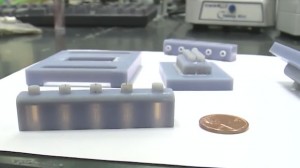NEW YORK (Reuters Health) – Although dimenhydrinate can reduce vomiting in children with acute gastroenteritis, it does not improve oral rehydration or clinical outcomes, according to a report in the September 14th online issue of Pediatrics.
Dimenhydrinate is commonly used for pediatric gastroenteritis in Canada and Germany, but data supporting its safety and efficacy are lacking, Dr. Hans Holm Uhlig, from the University of Leipzig, Germany, and colleagues explain.
To investigate, the researchers randomly assigned 243 children with vomiting and presumed gastroenteritis to receive either rectal dimenhydrinate or placebo. The children had no or mild dehydration, and all were given oral rehydration therapy. The main outcome measure was weight gain within 18 to 24 hours after randomization.
No difference in weight gain was noted between the study groups, the report indicates. Likewise, the groups were comparable in terms of hospital admission rate, fluid intake, general well-being of the children, and potential side effects, including the number of diarrhea episodes.
As expected, vomiting was reduced with dimenhydrinate use. On average, children in the dimenhydrinate group had 0.64 vomiting episodes between randomization and follow-up visit, compared with 1.36 episodes per child in the placebo group. Moreover, 69.6% of the dimenhydrinate group and 47.4% of the placebo group were free from vomiting after randomization.
The authors conclude that while the benefit of the antiemetic is low in children with gastroenteritis and mild dehydration, it is unclear whether the drug might offer greater benefits to children with more severe dehydration.
Reference:
Pediatrics 2009.




